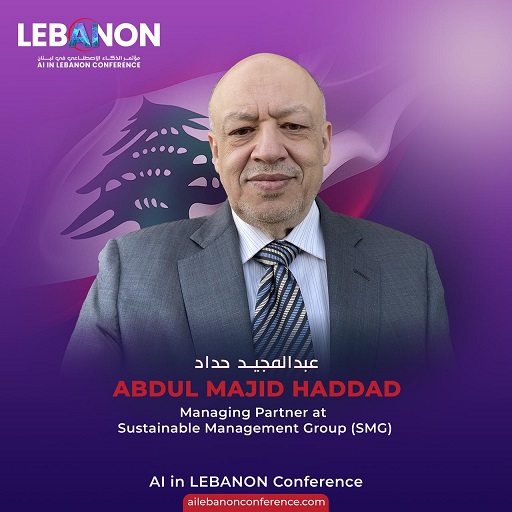
“My roots are in this land, and so is my responsibility.” This is how Eng. Abdul Majid Haddad, one of the region’s foremost experts in information security and AI governance—describes his drive to give back to Lebanon.
With over 30 years of experience in quality assurance, auditing, and conformity assessment, Abdul Majid has become a trusted name across the Arab world. His work has touched governments, corporations, and institutions alike, most recently leading his team at Sustainable Management Group (SMG) in a landmark project that helped SDAIA (Saudi Data and AI Authority) become the first organization worldwide to receive ISO 42001 certification for Artificial Intelligence Management Systems.
“What I learned abroad, I owe to my beginnings here. It’s time to return the favor, not with nostalgia, but with action.”
His commitment to Lebanon’s digital future is not confined to a single city. From Beirut’s institutions to the chambers of Tripoli, the youth of Sidon, the professionals of Zahle, and the thinkers of every mountain and village, Abdul Majid is ready to offer his insights and guide the next generation of technologists, auditors, and policymakers.
Certified in a sweeping list of ISO standards—ranging from ISO 42001 and ISO 23894 for AI, to ISO 27001 for information security, GDPR, IT service management, and beyond, he brings world-class rigor to every workshop and consultation. His educational credentials include advanced executive training from MIT Sloan School of Management and MIT CSAIL, where he completed the renowned “Artificial Intelligence: Implications for Business Strategy” program.
“Our country deserves more than survival, it deserves strategy. In every village, there is potential waiting to be unlocked. In every young mind, there is a spark.“
Abdul Majid believes Lebanon can claim its share of those benefits, not just by consuming technology, but by shaping its ethical use, building resilient systems, and preparing communities for the future.